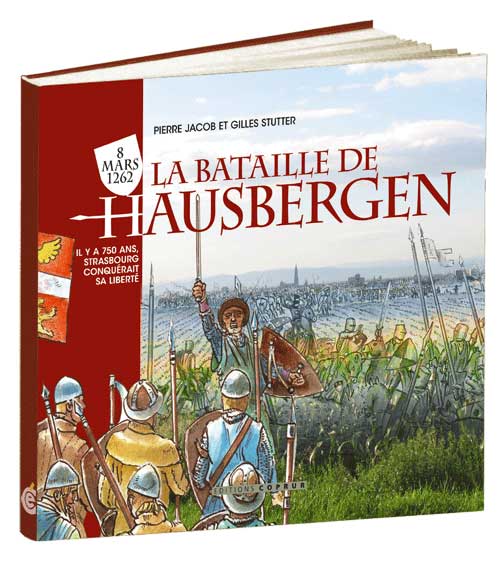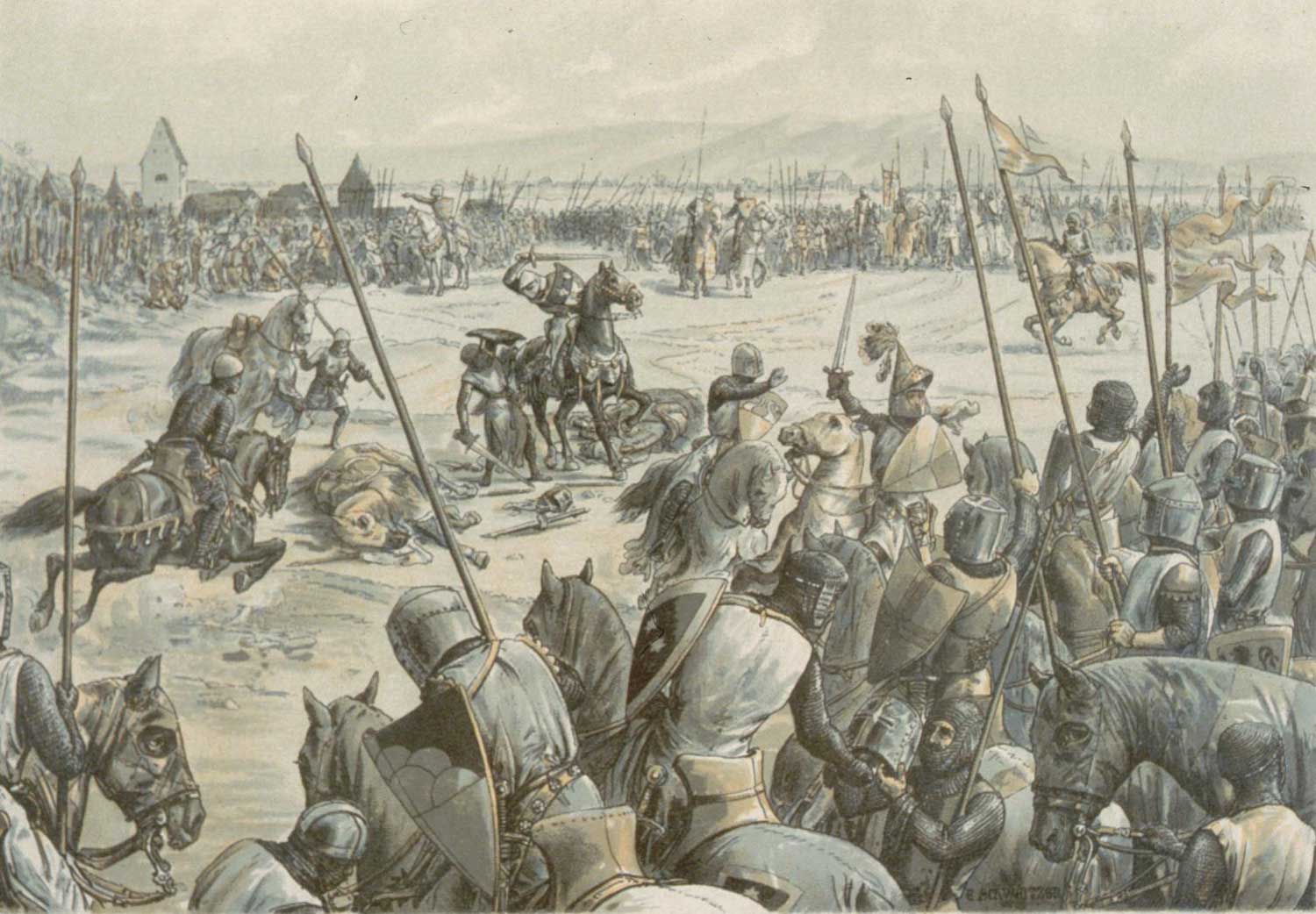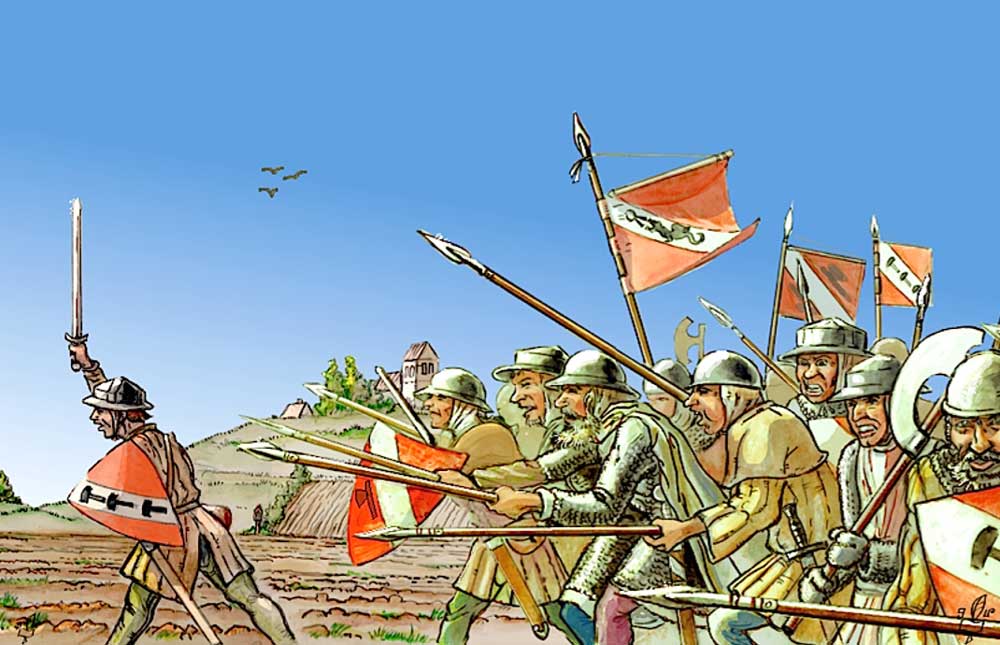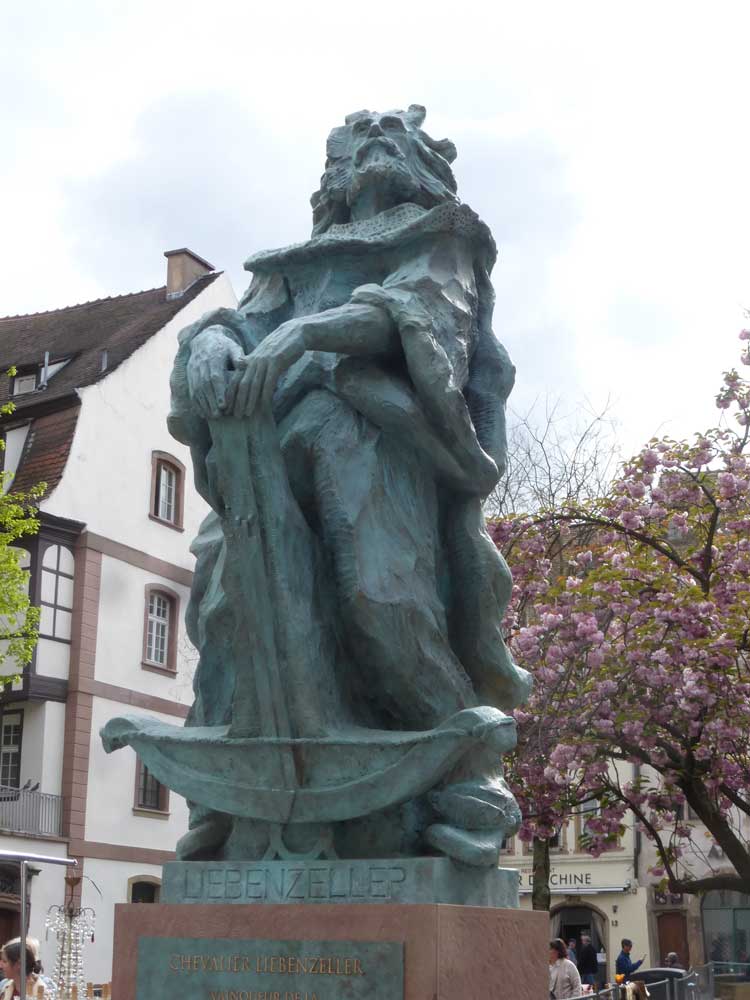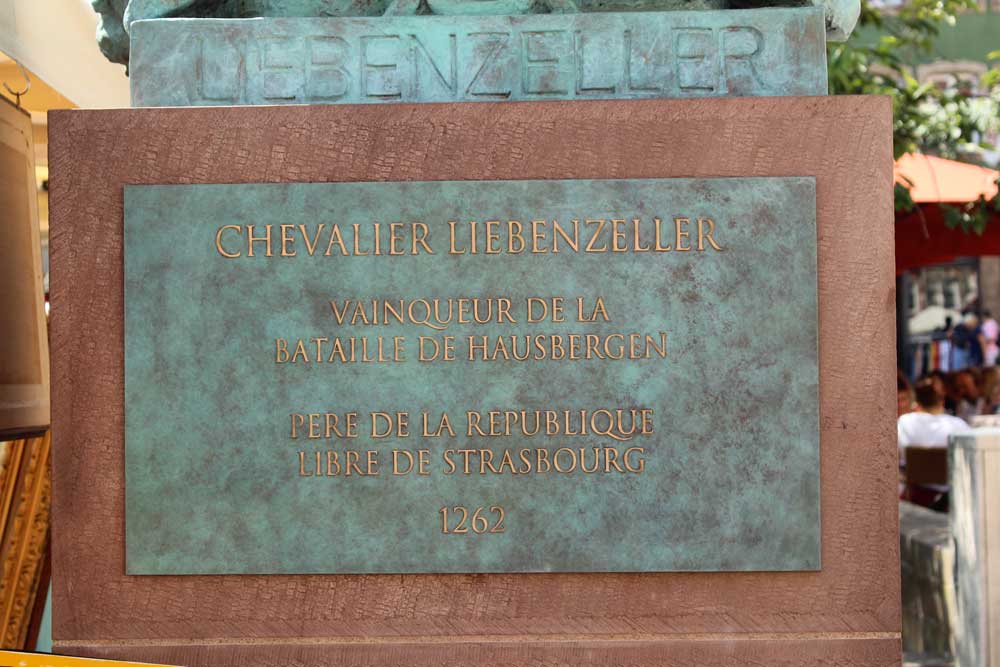The Battle of Hausbergen
March 8th 2021, by Gabriel
The Battle of Hausbergen, an important event in the history of Strasbourg. By dint of mentioning this famous date of 1262 during our visits, I ended up thinking that the knowledge of this historic turning point was self-evident… It is clear that among my friends this is not always the case. And what better time than March 8th to do a little historical reminder? Yes, because it was on March 8th of the year 1262 that took place this battle which was to change the fate of Strasbourg.
Little Flashback
Over the 11th and 12th centuries, in Strasbourg, successive magistrates and bourgeois councils extended their power over the management of the city. Gradually, the episcopal power left more and more levies, taxes, privileges and communal domains to the bourgeoisie. Either out of ease, or out of disinterest, or because the Council was simply convincing, and all the more easily as the imperial power was far from Strasbourg.
But on March 27th, 1260, a new bishop is elected in office in Strasbourg, and this situation does not please him. The noble and powerful Walther of Geroldseck wants to take back a number of these privileges for his own benefit. In view of the imperial power far away, he is considered the most powerful figure on both banks of the Rhine. He then issues an ultimatum to the Council: to give him back its rights by Pentecost 1261, otherwise he will be forced to use force.
The city stands strong and camps on its positions, refusing to undergo the yoke of their bishop whose family is also in the process of constituting a principality around the city. What now belongs to the people of Strasbourg, they will not give it back! The conflict therefore takes a military turn: Strasbourg mobilizes its forces and in June 1261 launches a first military operation aimed at destroying the episcopal castle of Haldenburg which stands south-southwest of Mundolsheim and disrupts communications to the north. This is the first step towards open war between Strasbourg and its bishop! In response, Walther assembles a huge army for the time, numbering an estimated 7,000. He blocks access to the city, and a truce is made in July 1261 to allow the harvests (especially grape harvest) to begin, but hostilities quickly resumes, with multiple clashes.
March 8th, 1262
At the beginning of March 1262, the bishop has been trying to subdue the city of Strasbourg for two years, it does not turn so well for him… He therefore decides to bring everyone into line with bans, blockades, and… excommunications! Believe me, that was a strong argument at the time, but it only exacerbates the tensions: the final battle is approaching.
On Wednesday March 8th, 1262, half of the Strasbourg garrison, heads by the knight Reimbold Liebenzeller, destroys the steeple of the fortified church of Mundolsheim, from where watchmen could monitor any movement in the city and sound the alarm. The exit is quickly reported to the bishop, installed in Dachstein. Immediately, a part of the episcopal army sets out, preceded by about 300 knights in armor and eager to do battle.
With the bell tower down, the Strasbourg residents, aware that the alert has been given in the episcopal camp, begin their way back by staying first on the heights of the Hausbergen hills. Liebenzeller sends riders to town to ask for reinforcements, but stays on the hill. When the rest of the garrison is in sight, Liebenzeller resumes his march and bypasses the village of Oberhausbergen. When the bishop arrives, he believes that Liebenzeller is trying to escape and to return to Strasbourg, and thinks he can crush him with his cavalry. The Bishop’s infantry is late, but his cavalry charges anyway. However, in the meantime, the Strasbourg reinforcements have organized themselves, archers and crossbowmen form the wings, preventing the enemy infantry from approaching with arrows, the shock is therefore exclusively for the cavalry.
Very quickly the battle becomes a melee: a few butchers and shovelers from Strasbourg are responsible for cutting the hocks of enemy horses, causing the knights disturbed by their armor to fall to the ground, it is a massacre. Terrible scenes unfold, for example the bishop’s brother is seriously injured, and finally killed by a looter who seeks to recover the jewels that the man is wearing, by cutting off his hands. It was such a disaster for the bishop that he was forced to flee: he retired to Molsheim, relinquishing his prerogatives over the city. He will never recover from this defeat, and will die on February 12th, 1263.
We are talking about 1300 killed among the episcopal infantry, 70 dead knights, 86 nobles captured while the Strasbourg residents would have only one death to deplore, a butcher named Bilgerlein, taken prisoner and massacred in Geispolsheim after the battle…
Why is this so important in the history of Strasbourg?
First, from a military point of view, it is the only battle in Alsace in the 13th century. It is also the first time that north of the Alps an army of knights (and therefore war professionals) has lost to an urban militia, artisans. It’s got some style, right?
The Strasbourg triumph will also allow the nobility and the patriciate to seize power. But most importantly, this battle marks the beginning of Strasbourg’s emancipation, its accession to the title of “free city” in the Holy Roman Empire. And once in power, its bourgeois went so far as to create, in 1332, an urban republic with a constitution and democratic institutions. In 1358, Strasbourg was officially described by Emperor Charles IV as “Freie Stadt”, a free city. It is therefore exempt from taking the oath to the emperor. Its independence will not be called into question until 1681, when it will pass under the French bosom. This period represents the golden age of Strasbourg, and its starting point is this famous battle of Hausbergen. That’s why.
Today, Place des Tripiers in Strasbourg, stands proudly a statue of Reimbold Liebenzeller with his crossbow (no, it’s not an anchor), under which is inscribed “Father of the Free Republic of Strasbourg”.
Unfortunately, since the 1920s, the battle of Hausbergen is no longer taught in school because national historiography has supplanted regional historiography, and perhaps, because at the time, Alsace belonged to the German Empire… I leave you to your thoughts on this last fact, and don’t hesitate to ask us more during our guided tours ????
At least, now you know what we’re talking about when we mention the great battle of Hausbergen and why it is important!

